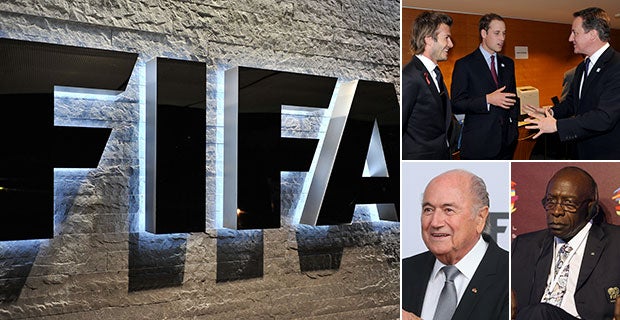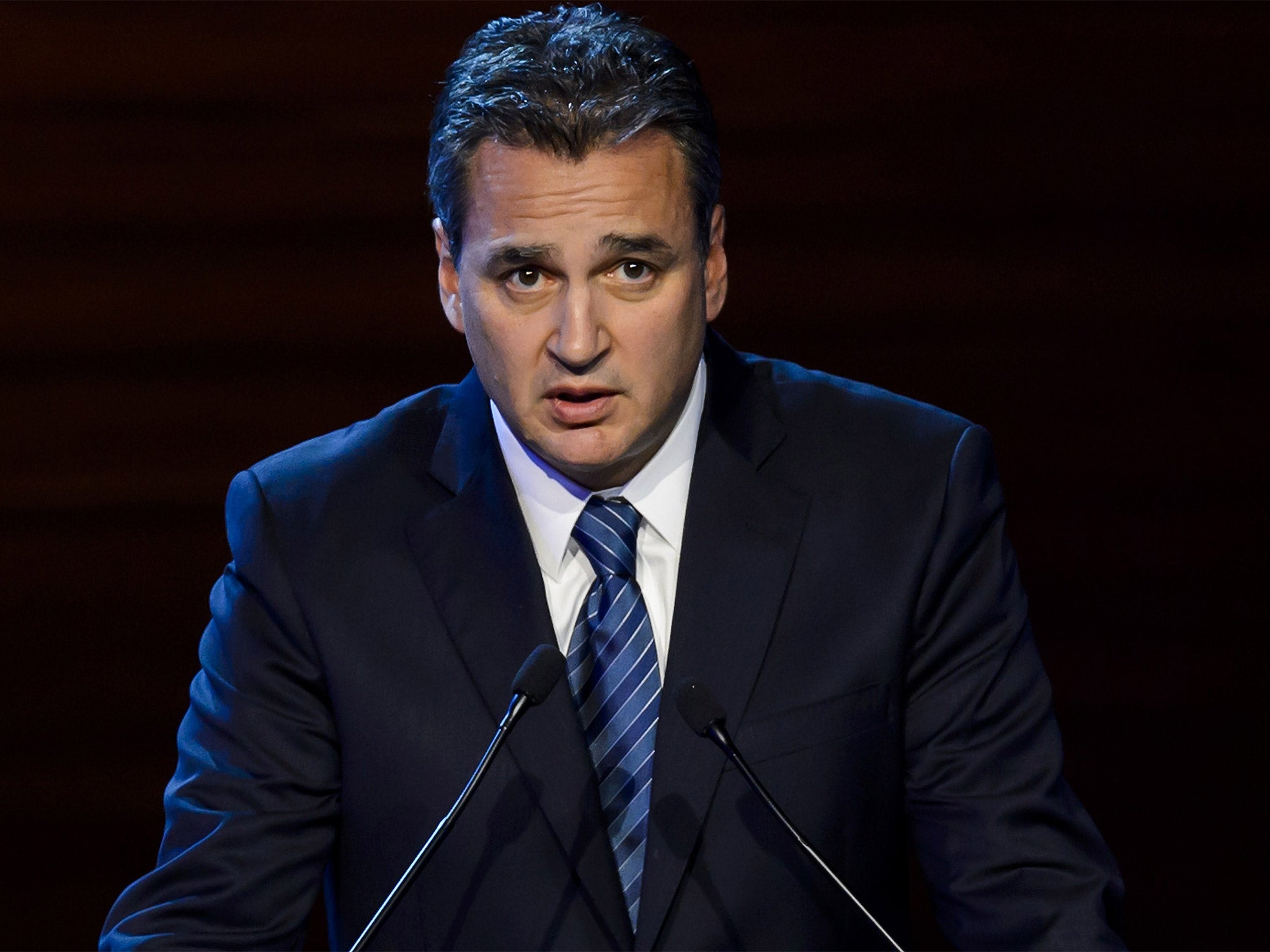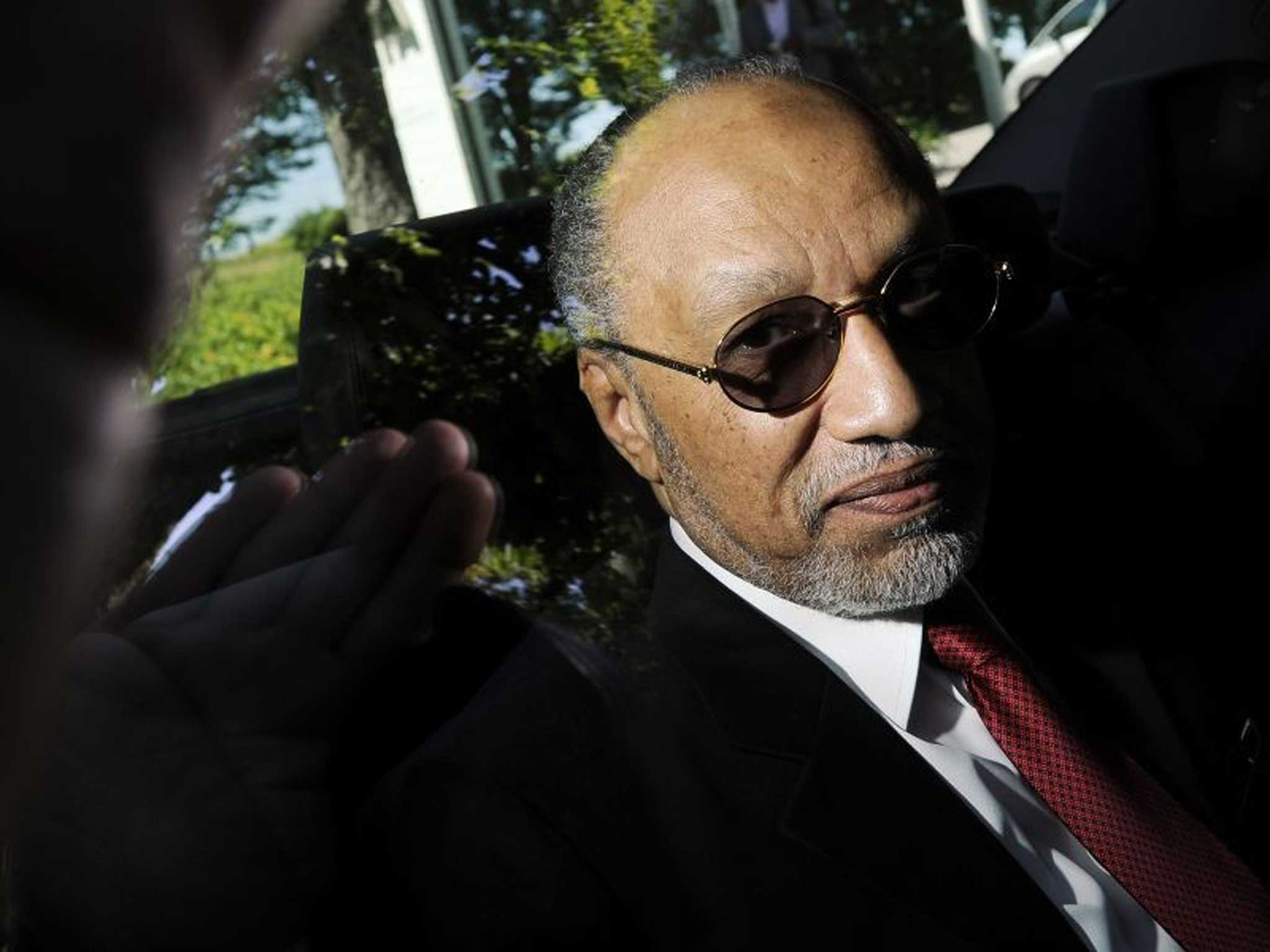World Cup 2022 comment: 'Whitewash' report astonishingly claims Qatar did nothing wrong in bid to win World Cup
The FA and Lord Triesman have been heavily criticised for their role in the 2018 World Cup bid but Fifa will not take action against anyone involved

Your support helps us to tell the story
From reproductive rights to climate change to Big Tech, The Independent is on the ground when the story is developing. Whether it's investigating the financials of Elon Musk's pro-Trump PAC or producing our latest documentary, 'The A Word', which shines a light on the American women fighting for reproductive rights, we know how important it is to parse out the facts from the messaging.
At such a critical moment in US history, we need reporters on the ground. Your donation allows us to keep sending journalists to speak to both sides of the story.
The Independent is trusted by Americans across the entire political spectrum. And unlike many other quality news outlets, we choose not to lock Americans out of our reporting and analysis with paywalls. We believe quality journalism should be available to everyone, paid for by those who can afford it.
Your support makes all the difference.The English Football Association and former chairman Lord Triesman have been heavily criticised by a Fifa corruption report into the 2018 World Cup bidding process, but remarkably investigators have found nothing wrong with the Qatar bid to land the 2022 finals.
The report has already been described as a “whitewash” by the Conservative MP Damien Collins. Even Fifa’s ethics committee itself acknowledges that the challenge of proving corruption, and the lack of “coercive” powers over key figures who gave evidence imposed limitations.
The clean bill of health for the 2018 Russia bid and Qatar’s tournament means that there will be no question of a fresh vote. The tournaments, which were awarded in December 2010 by a now discredited voting process, will still go ahead. The likelihood is that Qatar 2022 will be staged in the November of that year.
The millions of documents uncovered by the Sunday Times in June which alleged that the Qatari football official Mohamed Bin Hammam, now banned for life from the game by Fifa, had paid almost £3m to football officials around the world have not been taken into consideration by the American lawyer Michael Garcia, leading the investigation.
It is only in the conclusion of the report, where the Fifa ethics committee acknowledges the limits of its own powers, and the difficulty of proving international corruption, that there is the hint that more lies beyond its limited findings.
It emphasises the fact that “mere speculation” about wrongdoing is of no use for the level of proof required. This part of the report reads as if it is aimed at the British media who are by far and away the fiercest critics of Fifa and those most likely to hold the report up to scrutiny.
After months of investigation by Garcia, and a wrangle over whether the report should be released in its entirety, the conclusion is that there is no case to answer on the part of Fifa president, Sepp Blatter or the Qatar bid. While it will undoubtedly be the outcome that Blatter hoped for, the report will do nothing to address the organisation’s toxic international reputation.
The report is not the full scope of Garcia’s investigation. Rather it is a report of its findings by the German judge Hans-Joachim Eckert, chairman of the adjudicatory chamber of Fifa’s ethics committee.
Ultimately, like all over bidding parties, the FA was cleared as an organisation of wrongdoing. However, it said in a statement today that it did not “accept any criticism regarding the integrity of England's bid or any of the individuals involved.”
The FA said: "We conducted a transparent bid and, as the report demonstrates with its reference to the England bid team's 'full and valuable co-operation', willingly complied with the investigation. We maintain that transparency and co-operation around this entire process from all involved is crucial to its credibility.”

There is little the English governing body can do over Fifa’s stance, other than refuse to participate in future World Cup finals, an option that is unlikely to garner any public support. There is still the possibility that individuals from England could face Fifa disciplinary charges over the allegations made in Garcia’s report.
The report made the following criticisms about the England 2018 bid which attracted just two votes – one from the English executive committee member Geoff Thompson – and was eliminated in the first round of bidding.
- The focus of the English bid was Concacaf (Central and North America region) president Jack Warner, from Trinidad and Tobago, who was “showering the England 2018 bid team with inappropriate requests”. Warner has since retired from football for life to avoid Fifa disciplinary measures over previous corruption allegations. It is also alleged that money from Australia’s 2022 bid found its way into his personal bank account.
- Warner asked the FA/English team to help “a person of interest to him find a part-time job in the UK” – a request to which the English acquiesced
- The FA/English team were “willing” to provide “favours and benefits” for Warner’s “Joe Public Football Club” in Trinidad and Tobago
- The FA/English made “substantial assistance” to the UK training camp of a Trinidad and Tobago team during an Under-20s tournament in 2009
- Warner used his “considerable influence … to exact personal benefits in violation of the Fifa code of ethics”. The report finds the English/FA showed “a willingness, time and again, to meet such expectation”
- The FA/English sponsored a Concacaf dinner for $55,000 “in an effort to curry favour” with Warner
- There was memorandum of understanding between the FA/English with the Oceania Football Confederation’s now disgraced former president Reynald Temarii which suggested he would get “considerably preferential treatment” in allocating development funds
- There was criticism in the report of former FA chairman Lord Triesman who testified on corruption in the bidding process to the Culture, Media and Sport Committee of the House of Commons but refused to cooperate with the ethics committee investigation
- The report highlights “potentially problematic conduct of specific individuals” and “will take appropriate steps if it deems such measures appropriate and feasible”. However, as with all the bids, it finds that nothing the FA/English did was “suited to compromise the integrity of the … bidding process as a whole”.
QATAR
The key figure, Mohamed Bin Hammam, is criticised only in terms of corrupt payments he is alleged to have made ahead of his attempt to be elected Fifa president in June 2011. The Sunday Times investigation, into bribery of football officials to vote for Qatar’s World Cup bid, which was published towards the end of Garcia’s own period of investigation, is not referred to at all.

The Qatar bid team has always maintained that Bin Hammam was a rogue element who did not work on behalf of them, despite him being a Fifa vice-president before the second of his lifetime bans from the organisation. He successfully appealed the first.
RUSSIA
The successful 2018 Russian bid is criticised in the report for making public “only a limited amount of documents” on the basis that leased computers used by the bid team had since been returned. The owner of those computers “has confirmed that they were destroyed in the meantime”. The Russian bid said that attempts to access Gmail accounts used during the bidding process had not been responded to by Google USA.
SEPP BLATTER
Blatter is praised by the report, which notes that the “one concrete allegation against the Fifa president, concerning an account purportedly held in his name at a US bank was demonstrably false”. Blatter, it says, “deserves credit” for the cooperation of Fifa with the investigation.
CONCLUSIONS
Only in the final pages does the report acknowledge that it is virtually impossible to prove corruption if, indeed, it exists. The report says that the line between proper and improper conduct “is a very fine one”. It adds that the “main challenge with regard to corruption is proving it”. That “to assume that envelopes full of cash are given in exchange for votes on a Fifa World Cup host is naive” and that corruption is “executed in much more sophisticated ways”.
Rather the report says that the “perception … a vote must have been ‘bought’ if the host selected is not the one that has been generally considered a favourite (a position that is quite common in the media), is mere speculation and far from anything a judicial body like the Fifa Ethics Committee is allowed to accept as proof”. The report adds that it has no “coercive” power over individuals unlike “public law enforcement … or prosecutors”.
Join our commenting forum
Join thought-provoking conversations, follow other Independent readers and see their replies
0Comments